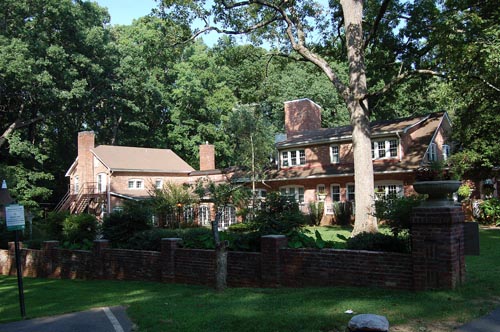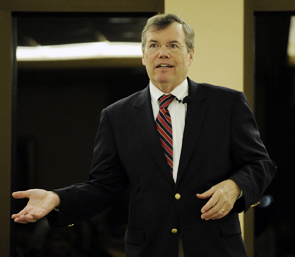 | | | As fall semester begins in earnest, there is a newfound sense of hope for students and educators working on the climate crisis. The recent passage and signing by President Biden of the Inflation Reduction Act (IRA) is a monumental step forward for the climate movement in the United States. Despite its inclusion of potential oil and gas drilling leases (which the Rachel Carson Council opposes) that were demanded by Sen. Manchin (D-WV), the IRA will reduce U.S. carbon emissions 40% by 2030 and funds initiatives in nearly all the areas where some of the most important decisions in sustainability are currently being made. From renewable energy to land conservation and climate resilience, a new age in the United States’ efforts against climate change has begun; the opportunities it presents for members of campus communities and students looking to begin careers working on climate are unprecedented. An excellent way to jump start commitment to a career in climate justice and other critical environmental issues is to become a Rachel Carson Council (RCC) Fellow, an RCC program that has been growing rapidly. The RCC is thrilled to be able to announce the 2022 – 2023 academic year cohort of the Rachel Carson Council Fellowship Program. With a stipend of $2,000 and mentoring throughout the year, the RCC fellowship program is designed to support outstanding student leaders who are working on climate, sustainability, and environmental justice. This is our biggest and most inclusive fellowship cohort to date, with 29 fellows who were selected competitively nationwide. They will be working on projects ranging from divestment, opposition to wood pellet production, initiatives to expand campus green space and solar, improvements in public health, and the gathering and telling of stories about environmental justice in their communities.  As part of their Fellowship, the 2022-2023 Fellows attended the first five-day in-residence American Environmental Leadership Institute (AELI) at the Rockwood Manor Retreat Center adjacent to the C&O Canal National Park where Rachel Carson frequently went for inspiration. They were joined by 8 RCC Stanback Fellows from Duke and Virginia Tech Universities. Faculty included RCC President Bob Musil, RCC staff, and members of the RCC National Advisory Council including author, activist, and 350.org founder, Bill McKibben. Be sure to follow RCC social media as well as RCC Campus Dispatch to stay up to date on their work throughout the year. As part of their Fellowship, the 2022-2023 Fellows attended the first five-day in-residence American Environmental Leadership Institute (AELI) at the Rockwood Manor Retreat Center adjacent to the C&O Canal National Park where Rachel Carson frequently went for inspiration. They were joined by 8 RCC Stanback Fellows from Duke and Virginia Tech Universities. Faculty included RCC President Bob Musil, RCC staff, and members of the RCC National Advisory Council including author, activist, and 350.org founder, Bill McKibben. Be sure to follow RCC social media as well as RCC Campus Dispatch to stay up to date on their work throughout the year. Elsewhere in this issue, take note of a college student running for office in Ohio, a divestment victory at the University of Washington, new research on climate and contamination by Duke professors, and more. | | | | | | | | How One Rust Belt College Is Transforming Its Local Food System In Michigan, Kalamazoo Valley Community College has built a rare model aimed at connecting people through growing food, supporting local farmers, and educating a wide variety of community members. Under a robin’s egg June sky, John Smith pulls a clump of green onions from a raised bed. The roots make a soft wrenching sound as they release the ground. Smith stands, shakes soil from the roots, and bundles the onions with a rubber band. | | | | | | Can This Teenage Democrat Win in Ohio? Sam Lawrence is a college student running for the Ohio House of Representatives, modeling his campaign after Tim Ryan and Pete Buttigieg. The Democratic Party spent the past decade watching in horror as Ohio, once considered a battleground state, turned reliably red. Donald Trump won the state in both 2016 and 2020, and his influence—along with interest groups like the Center for Christian Virtue—has only pushed the Ohio GOP further right. Since 2011, Republicans have held the governor’s office, the House, and the Senate, and extreme gerrymandering could soon cement conservative control. | | | | | | | | On a Warming Planet, Urban Trees Become Critical Infrastructure As heat waves turn cities into sweltering ovens, tree shade has become a critical tool to mitigate climate change—and Yale is working to promote a healthy tree canopy on campus and around New Haven. Urban trees provide a host of benefits that blunt the effects of the climate change, and they are increasingly being treated as important infrastructure for cities. Trees sequester carbon dioxide, produce oxygen, reduce stormwater runoff by utilizing water before it’s channeled into a drainage system, and capture pollution particulates—especially ozone—through their leaves or needles. | | | | | |  | DOE Announces $540 Million for Technologies to Transform Energy Production and Cut Emissions 54 Universities and 11 National Labs Will Work Across 34 States and D.C. to Research Clean Energy Technologies and Low-Carbon ManufacturingThe U.S. Department of Energy (DOE) today announced more than $540 million in awards for university- and National Laboratory-led research into clean energy technologies and low-carbon manufacturing. | | | | | | U Washington to Divest From Fossil Fuels The University of Washington Board of Regents on Thursday approved a resolution to begin exiting all direct investments in fossil-fuel companies with the goal of complete divestiture by Fiscal Year 2027. The resolution includes a commitment not to renew indirect investments in funds primarily focusing on fossil-fuel extraction or reserves. Both commitments include allowances for firms contributing to the transition to sustainable energy. | | | | | | Brandeis Announces “Year of Climate Action” Using the Year of Climate Action as a point of inspiration and frame of reference, the Department of Theater Arts will bring Sojourn Theatre to Brandeis to collaborate with Brandeis Students during a two-week residency from September 11-24, 2022. Students will work with two Sojourn Theatre Artists to create Year of Climate Action / A Devised Participatory Performance, Brandeis Students working in collaboration with Sojourn Theatre. The work will be created in collaboration with Sojourn Theatre Artists using a variety of techniques. | | | | | | Tampa Electric to Invest in Visionary Partnership with the University of South Florida, Dedicating 5m to Carbon Reduction Projects As part of Tampa Electric’s journey toward a cleaner, smarter energy future, the company will invest $5 million in the University of South Florida to fund research, education and innovation that aims to reduce carbon and improve the environment. This commitment will further strengthen the longstanding relationship between the two local flagships and will help to build a resilient, healthy environment for future generations. | | | | | | U Southern California to Obtain Solar Electricity for 25% of Consumption The agreement will provide a quarter of USC’s electricity with power from a solar farm in Mojave. It also brings new opportunities for residents in nearby communities to gain access to affordable solar power. USC will obtain 25% of its electricity from solar-generated power and contribute to new solar programs that expand opportunities for disadvantaged communities to access affordable clean energy — all under a new agreement with the Los Angeles Department of Water and Power. | | | | | | U Utah Receive $20M for New Climate Science & Policy Center The University of Utah today announced the creation of the interdisciplinary Wilkes Center for Climate Science and Policy to promote research, study effective public policies and propose entrepreneurial business solutions to curb and combat the threats that climate change poses to human and environmental health. The center, which the University anticipates will become a national and international model, is being launched through a $20 million gift from the Red Crow Foundation, the philanthropy of Marie and Clay Wilkes. | | | | | | 725-Panel Solar System To Fully Power Raritan Valley College Center Raritan Valley Community College is going even more green with the latest installation of a new 313.6kilowatt (kW) ground-mounted solar system. The 725 -panel system — which can produce up to 386 Megawatt hours (MWh) per year of clean, renewable energy — is fully powering RVCC’s two-story, 44,000 square-foot Workforce Training Center. In addition to powering the WTC, the system is configured for remote net metering, allowing to power of other buildings on the RVCC campus. | | | | | | Virginia Tech Gets $80 Million Grant to Promote Climate-friendly Farming It is the largest grant received in the university’s history. The College of Agriculture and Life Sciences will distribute at least $54 million to producers to enact climate-friendly practices and serve as a pilot program for a national model. The Virginia Tech College of Agriculture and Life Sciences received an $80 million grant from the United States Department of Agriculture to pilot a program that will pay producers to implement climate-smart practices on farms of all sizes and commodities, an initiative that could have significant impacts on curbing climate-changing gases. | | | | | | Duke PNorth Carolia Researchers Say Get Ready For More Floods, Contamination Climate change is causing hurricane-related flooding to increase — along with the cost to recover from these storms — and communities should prepare now. That’s what two researchers recommended during a recent Duke University-hosted media briefing on hurricane preparedness and impacts. “The biggest change in storm activity for North Carolina is not the frequency of landfalling hurricanes. It’s not even the intensity of these hurricanes. It’s the rainfall. It’s the amount of water...” said Dr. Megan Mullin of the Duke Nicholas School of the Environment. | | | | | | | | | The RCC Fellowship Program is designed to identify outstanding students with a passion for environmental education, organizing, and advocacy and provide them with financial support to carry out valuable projects and campaigns on behalf of the RCC. To apply to the program, students propose their own projects that are focused on sustainability and environmental justice to be carried out on their campuses and in their communities. RCC Fellows become nationally recognized environmental youth leaders. If accepted into the program, Fellows will become active members of the RCC national campus program with thousands of active faculty, students, staff and administrators at 60 campuses. Read more | | | | | | | RCC’s very own Claudia Steiner, Assistant Director of Communications and Development, will be traveling to Wilmington, North Carolina with our partners from the Southern Forests Conservation (SFCC) Coalition to raise awareness about the ongoing efforts of the Enviva corporation to clear-cut North Carolina forest for wood pellets. Joining Claudia on the tour will be students and faculty from the University of North Carolina at Greensboro and Wilmington. The Enviva Corporation’s climate-harming wood pellet production is now grinding 164 acres of North Carolina forests every day to ship to England to burn with coal to produce electricity. More than 50,000 North Carolina acres are to be destroyed in 2022. Click here to grab a seat! | | | | | | Plan Your 2021-2022 Campus Events with RCC now! The RCC prides itself on the Rachel Carson Council Campus Network of some 60 colleges and universities with over 5,000 active participants. With campus events once again going live, the RCC has begun speaking and organizing visits to campuses for the first time since the spring of 2020. We are working to engage faculty members, students, and administrators in our efforts for a more just and sustainable world. Contact the RCC today to bring our staff to your campus to help find the best ways to engage your community in the efforts against climate change. Campus Visits with RCC President, Dr. Robert K. Musil  RCC President & CEO, Dr. Robert K. Musil, a national leader in climate change, environmental justice and health is again available to book for in-person campus speaking events! Musil has been called “informative, challenging and inspirational all at once.” He is “motivational” with “intellectual depth” and “extraordinary impact.” RCC President & CEO, Dr. Robert K. Musil, a national leader in climate change, environmental justice and health is again available to book for in-person campus speaking events! Musil has been called “informative, challenging and inspirational all at once.” He is “motivational” with “intellectual depth” and “extraordinary impact.”
Dr. Musil is available for campus lectures and visits involving classes, meetings with campus and community groups, consultations with faculty and administrators, or for Earth Day, Commencement, and other special events. Stays range from one to three days. Reduced fees are in place for 2022-2023 and can be designed to meet reduced budgets. To arrange a campus visit with Dr. Musil, contact the RCC President’s Office at office@rachelcarsoncouncil.org or call 301-214-2400.  Campus Visit with RCC Staff Campus Visit with RCC Staff
The RCC also offers talks, classes, and workshops on student engagement, activism, sustainability, and the RCC Fellowship program with Associate Director Mackay Pierce
To arrange a visit, contact our Associate Director Mackay Pierce at: mackay@rachelcarsoncouncil.org | | | | | | | |  The Rachel Carson Council Depends on Tax-deductible Gifts From Concerned Individuals Like You. Please Help If You can. The Rachel Carson Council Depends on Tax-deductible Gifts From Concerned Individuals Like You. Please Help If You can. | | | |  Sign Up Here to Receive the RCC E-News and Other RCC Newsletters, Information and Alerts. Sign Up Here to Receive the RCC E-News and Other RCC Newsletters, Information and Alerts. | | | | | | | | | | | |